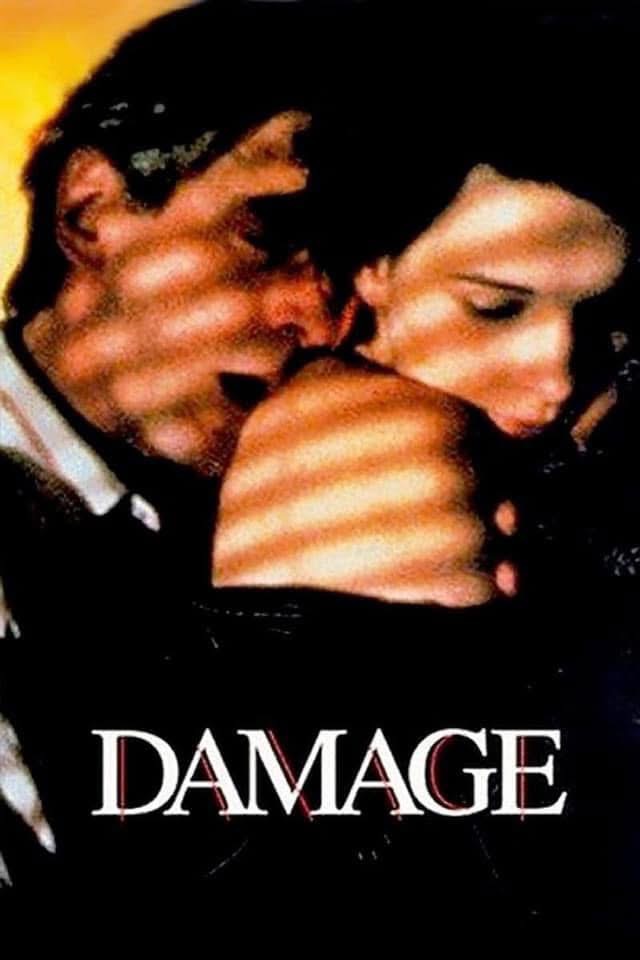Damage (1992)

Damage (1992), directed by Louis Malle and based on the novel by Josephine Hart, is a provocative and intense psychological drama that explores themes of obsession, forbidden love, and the destructive consequences of unbridled passion. Set in the world of British politics and high society, the film delves into a dark and complex affair that unravels the lives of its characters, examining the corrosive effects of desire on relationships and morals.
Plot Overview
The story centers around Stephen Fleming (Jeremy Irons), a respected British politician who is married to Ingrid (Miranda Richardson), a loving but emotionally distant woman. Stephen is seemingly content with his life, until his son’s fiancée, the beautiful and enigmatic Anna (Juliette Binoche), enters their home. A passionate and illicit affair quickly ensues between Stephen and Anna, which leads them into an uncontrollable spiral of obsession and desire.
The affair, initially furtive and driven by intense physical attraction, becomes all-consuming, resulting in personal and familial destruction. Stephen’s obsession with Anna leads him to make increasingly reckless decisions, and the fallout from the affair affects not only his marriage but also the lives of those around him, including his son, who is tragically unaware of the betrayal.
Direction and Cinematography
Louis Malle’s direction is masterful, capturing both the intimate and the grandiose aspects of the story. The film’s pacing is deliberate, allowing for the gradual unfolding of the affair’s consequences, with the tension building slowly but steadily. Malle’s use of close-ups and intimate framing enhances the film’s emotional weight, drawing the audience into the complex emotional lives of the characters.
The cinematography by Pierre Lhomme is lush and atmospheric, with the film’s muted color palette and striking imagery creating a sense of cold beauty that reflects the moral decay of the characters. The visual contrast between the sumptuous settings of the film, such as the elegant mansion and the luxury of Stephen’s life, and the emotional emptiness of the characters, highlights the dissonance between their external success and internal turmoil.
Performances
Jeremy Irons delivers a standout performance as Stephen Fleming. He plays the role of the restrained and morally conflicted politician with subtlety and complexity. Irons conveys the internal struggle of a man who is unable to control his desires and is consumed by guilt, shame, and lust. His portrayal captures the complexity of Stephen’s character—his vulnerability, authority, and eventual unraveling—making him a tragic figure.
Juliette Binoche is equally compelling as Anna, the catalyst for the affair. She brings a mysterious and alluring quality to the character, making Anna both magnetic and enigmatic. Binoche’s performance is nuanced, capturing the complexity of a woman who is both in control of the affair and a victim of it.
Miranda Richardson, as Stephen’s wife Ingrid, is excellent in her portrayal of a woman who senses that something is wrong but cannot fully grasp the extent of her husband’s betrayal. Her performance adds emotional depth to the film, highlighting the devastating impact of Stephen’s actions on his family. The supporting cast, including Rupert Graves as Stephen’s son, also contributes effectively to the film’s emotional resonance.
Themes and Symbolism
At its core, Damage is an exploration of the destructive power of desire. The affair between Stephen and Anna is not just about physical attraction but also about the psychological compulsion that leads both characters to abandon their morals, their families, and their sense of self. The film asks profound questions about the nature of love and obsession, suggesting that passion, when unchecked, can destroy everything in its path.
The symbolic use of the word “damage” is central to the film, as the characters’ lives are irreparably damaged by their actions. The consequences of the affair reverberate throughout their relationships, with betrayal, loss, and guilt marking every interaction. The film also critiques the facade of political and social respectability, showing how easily it can be shattered by personal desires and hidden secrets.
The contrast between Stephen’s public life as a successful politician and his private life as a man consumed by passion suggests a broader commentary on the duplicity of human nature and the fragility of societal structures. The tension between control and surrender, morality and immorality, is a constant theme throughout the film, leading to a devastating conclusion.
Critique
While Damage is undeniably compelling and thought-provoking, it can also be difficult to watch due to its dark and morally ambiguous content. The film’s focus on an affair that spirals out of control may alienate some viewers who are not comfortable with its exploration of infidelity and obsession. However, the complexity of the characters and the emotional depth of the performances make it a powerful film for those willing to engage with its themes.
Some viewers may also find the pacing to be slow, particularly in the early stages of the affair. While this allows for a thorough exploration of the characters’ emotional states, it may not hold the attention of those seeking a more fast-paced narrative. Additionally, the film’s bleak tone and tragic resolution may leave some feeling emotionally drained.
Conclusion
Damage is a gripping, emotionally charged film that explores the dangerous allure of forbidden passion and the catastrophic consequences of surrendering to desire. With superb performances from Jeremy Irons and Juliette Binoche, as well as a hauntingly atmospheric direction from Louis Malle, the film presents a dark meditation on love, obsession, and the fragility of human relationships. Though unsettling and morally complex, Damage remains a powerful and thought-provoking exploration of the costs of passion and betrayal.










